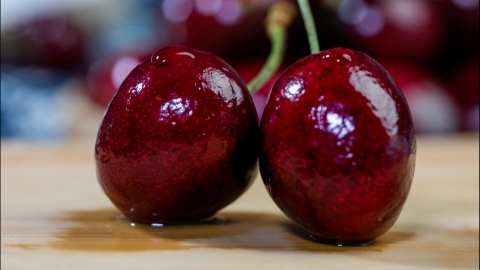Can children eat cherries?
Generally speaking, children can eat cherries, but it's important to consume them in moderation. Detailed analysis is as follows:

Cherries are rich in nutrients, such as iron, which is an important raw material for hemoglobin synthesis. Children are in a peak period of growth and development, and may be relatively deficient in iron, making them prone to iron deficiency anemia. Eating cherries in moderation can effectively supplement iron, helping to prevent and improve iron deficiency anemia, thereby promoting metabolism and intellectual development. In addition, cherries also contain large amounts of vitamin C and vitamin E, which are antioxidants that help enhance children's immunity and improve the body's ability to resist bacteria.
Cherries also contain beneficial components such as anthocyanins, which provide good protection for the eyes. Anthocyanins can improve blood circulation in the eyes, promote the regeneration and repair of retinal cells, and thus improve vision to some extent. For children in their developmental stage, eating cherries in moderation helps promote vision development and prevent eye diseases such as myopia.
Although cherries are nutritious, excessive consumption may cause indigestion, diarrhea, and other problems. Therefore, parents should reasonably control the amount consumed according to the child's age and physical condition.









